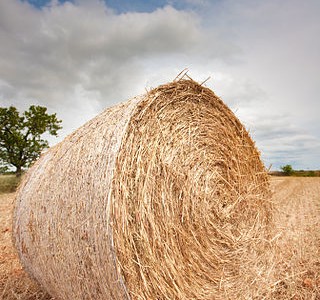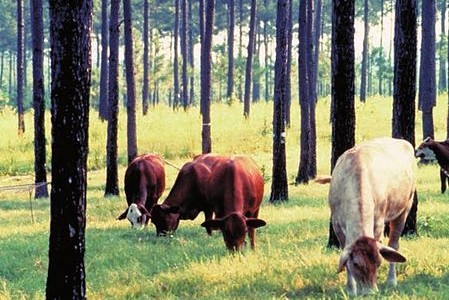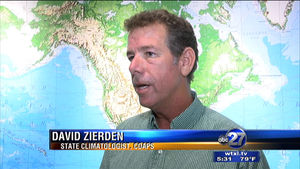Livestock
-

National Public Radio had an intriguing story about a hay farm in Arizona that is owned by a Saudi dairy company and how it is affecting local groundwater levels. “That dairy company, named Almarai, bought the farm last year and has planted thousands of acres of groundwater-guzzling alfalfa to make that hay. Saudi Arabia can’t…
-

“Silvopasture” is the combination of growing trees, forage and livestock together. The USDA National Agroforestry Center has put together a great list of resources online that describe how silvopasture works and what things agricultural producers need to consider if they are thinking about converting. There are also some useful worksheets that help you determine if…
-

The online course on animal agriculture and climate change that was produced by one of our supporting grants is now available for free as a self-study course at the link below: https://www.extension.org/pages/73079/climate-change-and-animal-agriculture-self-study-topics#.VikF7NKrS71 You can learn more about the course at https://animalagclimatechange.org/free-online-course/. Each module can be taken individually. The list of topics covered is below. WEATHER…
-

Our sister blog for the “Animal Agriculture in a Changing Climate” project has a new blog post out this week with the title above. You can read the post at https://animalagclimatechange.org/mother-nature-always-wins/. The blog discusses the impacts of extreme weather events on livestock production and agriculture and how future extreme events might impact farmers. The project has a…
-

The heavy rain and flooding that impacted South Carolina last week ruined tens of thousands of hay bales, according to extension agents around the Southeast. This is hay that livestock producers were counting on to feed their livestock through the winter. Now these farmers will have to look for quality hay to replace what was…
-

As a climatologist and geographer I am always fascinated by the variety of maps that are available. You can measure the “climate” of many things, not just the weather. This week Matt Daniel, meteorologist at WMAZ in Macon, posted this map of the most active time for deer movement across Georgia from the Georgia Wildlife…
-

Because of the current El Niño, which is expected to last through the winter, heavy rain events of more than 2 inches in a day are twice as likely to occur than usual in the Southeast, according to Florida State Climatologist David Zierden. You can read an article and watch a video about his outlook at…